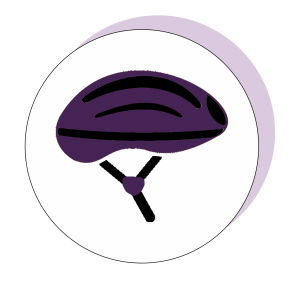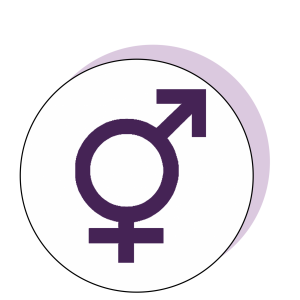Four of California’s recently enacted laws
February 1, 2019

AB 3077: All minors must wear helmets when riding bikes & skateboards
California’s first helmet law was implemented by the State Legislature in 1993 to decrease the alarming number of children’s head injuries that were seen in emergency rooms as a result of bicycle crashes, and AB 3077, proposed by Assemblymember Anna Caballero, helps reach the California Department of Transportation’s goal to reduce bicycle fatalities by 10 percent per year.
AB 3077 serves to better efforts to increase helmet use and to enforce existing helmet policies; it provides new standards for minors who are found not wearing properly fitted and fastened helmets while riding on a bicycle, scooter or skateboard or while wearing roller skates to correct their violation. No changes have been made to the existing rules for penalization, which state that minors found violating this helmet requirement shall pay a fine of no more than $25 excluding other fees and adjustments, and the charge may be dismissed if the rider states under oath that it is their first offense. However, AB 3077 now allows minors to correct their violations without paying a fine if their parents can prove that they have a helmet which meets the standards of the American Society for Testing and Manufacturing or the United States Consumer Product Safety Commission. The minor must also complete a local bicycle safety course if available; both of these actions must occur within 120 days after the citation is issued.

AB 485: Bans pet stores from selling commercially-bred pets
While California has enacted numerous laws pertaining to the sale, care and welfare of animals which are to be sold, there are no restrictions on where stores acquire their animals from. As a result, nothing stops a pet store from purchasing animals from commercial animal breeders, such as “puppy mills” or “kitten factories,” which mass produce animals for sale and profit and are typically criticized for their inhumane treatment of animals and squalid living conditions. In an effort to reduce the number of sales of animals from these sources, Assembly Bill (AB) 485 was proposed by Assembly members Patrick O’Donnell and Matt Dabadneh.
While individuals may buy pets directly from commercial breeders, AB 485 specifically prohibits pet stores from selling cats, dogs or rabbits unless they come from a public animal control agency, shelter, nonprofit or rescue group.
“I believe that this bill will benefit the future generation of animals in our society,” said sophomore and Events Coordinator of the Animal Services and Protection Club Anya Chatterjee. “Through banning mass commercial breeding, the animals that are bred in those inhumane conditions will finally be able to live in proper living conditions with the help of the community and volunteer organizations. These animals can receive a second chance at a new life and maybe even a loving family.”
To enforce this, the bill also establishes that pet stores must maintain records documenting the source of their animals for at least one year after acquiring the animal and to post the source of the animal on the animal’s cage or other enclosure. Those who violate the law are subject to a $500 fine for per animal which is not kept in compliance with this guideline.
The bill has received much praise for protecting rescued animals and providing them a better chance at finding an owner. However, since there is no way to pick and choose which breeds of animals are rescued, organizations such as the American Kennel Club have criticized AB 485 for limiting owners’ abilities to select a specific breed of pet that may be appropriate for the owner’s lifestyle.

SB 822: California Net Neutrality
In response to the Federal Communication Commission’s 2017 repeal of net neutrality, which prevents internet service providers (ISPs) from manipulating data that is sent through the internet, California State Senator Scott Wiener proposed SB 822. Without it, ISPs can block content, charge more for faster access to certain websites through paid prioritization, or alter the speed at which a website transmits data, an act referred to as as throttling.
SB 822 restores the Obama-era’s neutrality rules that prohibited the blocking of content, paid prioritization and throttling; it also bans the evasion of net neutrality requirements. Additionally, the bill also prohibits zero-rating, where ISPs can allow users to use an application or access internet content without counting that data towards a user’s data limit imposed by the service provider. The ban of zero-rating differs from the United States’ previous net neutrality laws, which outlawed paid prioritization but tolerated zero-rating under certain conditions.
Net neutrality has often been praised for protecting the rights of consumers, and its initial repeal in 2017 sparked wide dissent and protests.
“Without net neutrality, customers lose some rights,” said ___ and Vice President of Computer Science Club David Hu. “As in ISPs and larger groups will be able to have some more control on information that is spread through the internet and generally have more power.”
While individuals such as San Jose Mayor Liccardo support SB 822, companies such as AT&T, Verizon and TMobile have voiced dissent for the bill.
“With policies in favor of net neutrality, you’re putting a limit on how ISPs can behave,” Hu said. “Which may seem unfair and also decrease competition between ISPs, competition that would probably be beneficial to consumers and possibly even to companies alike.”
On Sept. 30, 2018, the Justice Department released a statement stating that net neutrality “unlawfully imposes burdens on the Federal Government’s deregulatory approach to the Internet” and filed a lawsuit against the State of California. Although SB 822 was originally planned to have gone into effect on Jan. 1, 2019, the bill cannot be enforced until the lawsuit is resolved.

SB 179: Nonbinary gender marker
Senate Bill (SB) 179, proposed by California State President Pro Tempore Toni Atkins, introduces a nonbinary gender option denoted by the letter “X” on California driver’s licenses, identification cards and birth certificates.While minors are allowed to change their gender markers on these documents, they must first petition to do so and obtain the written consent of one parent or legal guardian; however, the court may deny them if a parent objects or if the court feels that the change is not in the best interest of the minor.
The bill also clarifies and reforms the general process for changing gender identity markers on state-issued identity documents. Previously, individuals seeking changes to their gender markers, and their name, if requested, on their birth certificate were also required to appear in court, even if no one had filed an objection to this change. SB 179 removes this requirement; the court will now allow changes to gender markers and names without a court hearing.
“I think this is a necessary step to protect the LGBTQ+ community from discrimination,” said senior and Vice President of Lynbrook’s Gender and Sexuality Alliance Estella Lin. “It’s not harming anyone, and it lets people feel better about themselves properly represent themselves on their documents. By adding it in the gender marker it normalizes it.”
Organizations such as Equality California and the Transgender Law Center argue that the bill will lessen the amount of discrimination and harassment that transgender, intersex and nonbinary individuals face. On the other hand, groups such as the Catholics for the Common Good Institute have written in opposition, asserting that state records should reflect reality instead of the wants of individual people.
Despite the opposition, SB 179 will continue to do its job of protecting LGBTQ+ communities and helping represent individuals on their identification documents.



































































